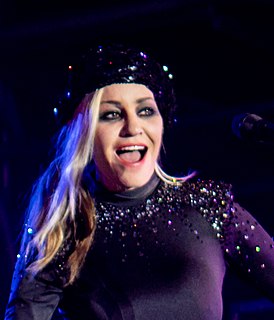A Quote by Erica Jong
My generation was not only maligned in book reviews and attacked in graduate school but we lived to see our adored and adorable daughters wonder why feminism had become a dirty word.
Related Quotes
And then it occurs to me. They are frightened. In me, they see their own daughters, just as ignorant, just as unmindful of all the truths and hopes they have brought to America. They see daughters who grow impatient when their mothers talk in Chinese, who think they are stupid when they explain things in fractured English. They see that joy and luck do not mean the same to their daughters, that to these closed American-born minds "joy luck" is not a word, it does not exist. They see daughters who will bear grandchildren born without any connecting hope passed from generation to generation.
Me and my brother lived in kind of a shed behind our house, and it was cold. We really lived kind of a dirty existence. It was tough to move away from my father and grandfather in California. I wore socks that were so dirty they were hard and black, and I would go into the lost and found box at school and look for clothes.






































